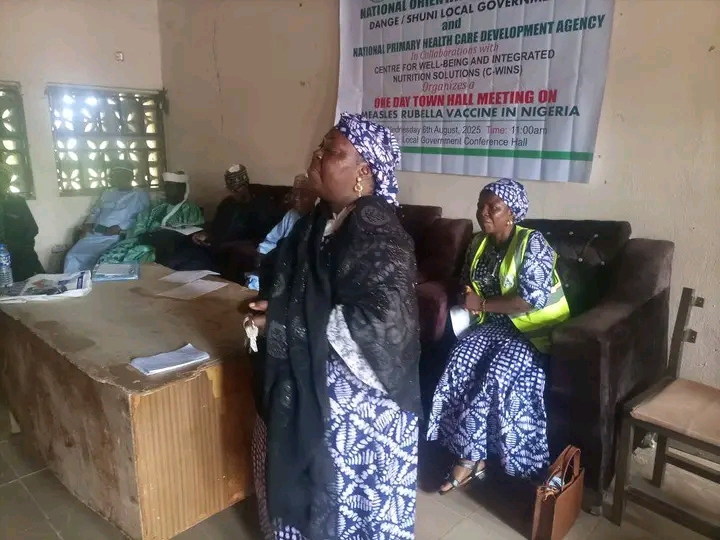By Muhammad Ibrahim, Sokoto
The town hall meeting on Measles and Rubella Vaccine Introduction in Nigeria, held in Dange Shuni Local Government, aimed to mobilize stakeholders on the dangers of these diseases, particularly for pregnant mothers and small children. The meeting emphasized the importance of Routine Immunization (RI), hospital delivery, nutrition, and water sanitation.
Both measles and rubella diseases can cause severe complications, including blindness, deafness, heart defects, and developmental disabilities.
Rubella infection during pregnancy can lead to Congenital Rubella Syndrome (CRS), resulting in birth defects.
The Measles-Rubella (MR) vaccine as explained during the meeting is set to be introduced nationwide in Nigeria, with the goal of eliminating these diseases. The vaccine has been used globally for over 50 years and is credited with saving millions of lives.
The lecturers explained that Immunization is crucial in preventing measles and rubella outbreaks.
They said Nigeria aims to achieve 95% vaccination coverage to ensure herd immunity and protect vulnerable populations.
Despite the benefits of immunization, Nigeria faces challenges such as low vaccine coverage rates, particularly in the North-West region, and misinformation about vaccines.
Engaging traditional and religious leaders is vital in promoting vaccine acceptance and uptake. These leaders can help dispel myths and misconceptions about vaccines.
It could be recalled that governor Àhmad Aliyu of Sokoto in his 9 point agenda has pledged to support the MR vaccine rollout, including public awareness campaigns and logistical support.
Collaboration between government agencies, civil society organizations, and community stakeholders is essential for the success of the MR vaccine introduction.
Continued advocacy efforts are necessary to ensure widespread acceptance and uptake of the MR vaccine as explained by Bilkisu Aliyu when contacted on the dangers of measles.
She said engaging communities through town hall meetings, radio and television campaigns, and social media can help build trust and promote vaccine uptake and that regular monitoring of vaccination coverage and disease outbreaks will help identify areas for improvement and ensure the success of the MR vaccine introduction.
Participants include local government council members, traditional and religious leaders among others.

Leave a Reply